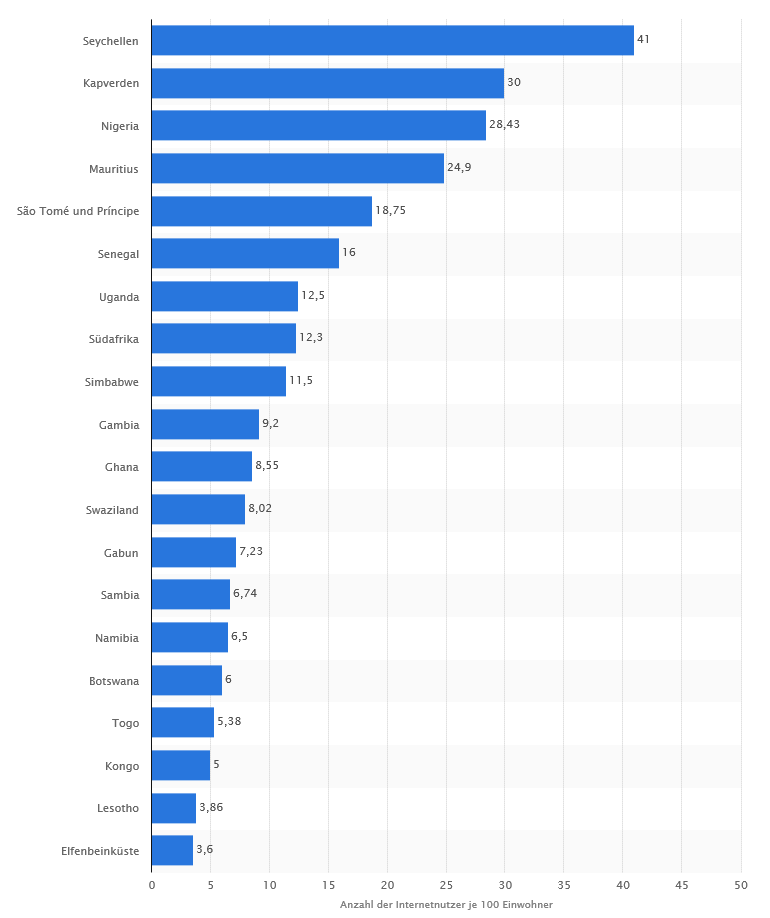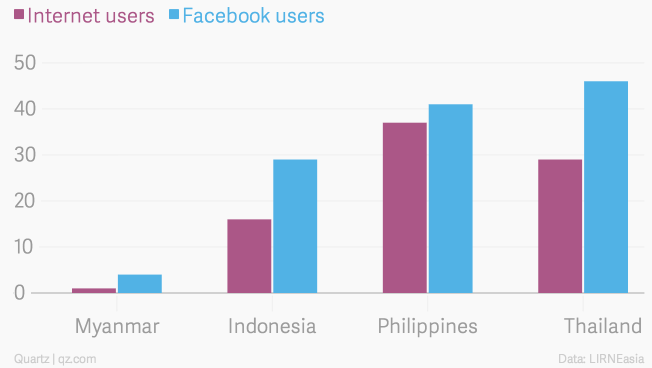Water, electricity …and internet
The internet connects people worldwide. Is that really true? In the developing countries, Wi-Fi isn’t common, neither in private homes, nor on public places. Would there be a possibility for an extensive, free-to-use Wi-Fi network?
In Europe, internet at home can be taken for granted almost everywhere, three quarters of all households were equipped with internet in 2012. However, a big difference exists between the European countries: Sweden and Denmark were by far the leaders: Sweden with 93% and Denmark with 96% of all households having an internet connection in 2013. In Germany, 79 % of all the households are online – but this is not the case in other countries. Romania and Bulgaria for example have a big amount of catching-up to do as they are only at about 50%. In developing countries for example in Africa, the internet is even used a lot less.

Water, electricity, internet?
On the Cape Verdean Islands, the local population knows the internet, but only about 30% of them are actually using it. Smartphones are really uncommon. If you ask for free Wi-Fi in a cafe, the only answer you usually get is a weird look – there is only one in the capital, Praia. However, in all the bigger cities there is a free Wi-Fi zone covering the main place. The speed is not the best, especially during the busier times – if somebody is using skype, the others are usually not able to enter their mailbox anymore. At least, the service is free what is a big advantage and of prime importance for poorer countries. The advantages are various: locals are able to send mails to their relatives living in foreign countries and therefore stay in touch with them, students are able to use online teaching aids and tourists are also able to get information easily, if it is for business like congresses or fairs or for private use.
In cities like London, New York or Barcelona, free Wi-Fi on the streets is self-evident nowadays and shows the technological and urban progress and boosts the standard of living. In Germany, where almost 80% of the population are using the internet, there are, on the one hand a lot of cafes offering free Wi-Fi, but you will, on the other hand have to order a coffee at least and, in addition, a lot of the cafe owners are not too happy if you use the Wi-Fi extensively. The people who aren’t able or don’t want to afford a home internet connection, barely get the chance to check their mails for free on public spaces. This is valid for almost every German city. The reason for this is, as to be expected, the strict bureaucracy. There would be liability issues if someone would misuse the Wi-Fi connection. One of the cities that is about to change this is Hamburg – cooperating with the cable network operator willy.tel, the city wants to offer full Wi-Fi-coverage for free until the year 2016. Currently, there are free Wi-Fi hotspots from Telekom (for one hour) or Kabel Deutschland (for 30 minutes) – these are only available in the touristiest areas though. The only city in Germany being different is Pforzheim where people are able to use free Wi-Fi unlimited and everywhere.

In Indonesia and Thailand, something very interesting is happening – the people there don’t know about the difference between Facebook and the internet. They believe, Facebook can be bought in a store and therefore say, they are using Facebook but not the internet. This is similar in Africa up to now.
The goal of Facebook, is to connect the whole world. This has nothing to do with the internet is a common fallacy there. In Indonesia, apparently 70 Million people are using Facebook, but only 37.6 Million the internet – a vast discrepancy. Why everybody there knows Facebook? Because of their clever marketing strategy. Banner and Paywalls are popping up as soon as you use the internet – Facebook is the easiest to reach and use, it is provided by internet.org.
In the future though, the developing countries are supposed to be equipped with a better internet connection through drone and satellite technology. It can only be hoped, that the connection and usage of the internet will surpass the usage of Facebook in the future.


 share
share tweet
tweet share
share
Leave a Reply